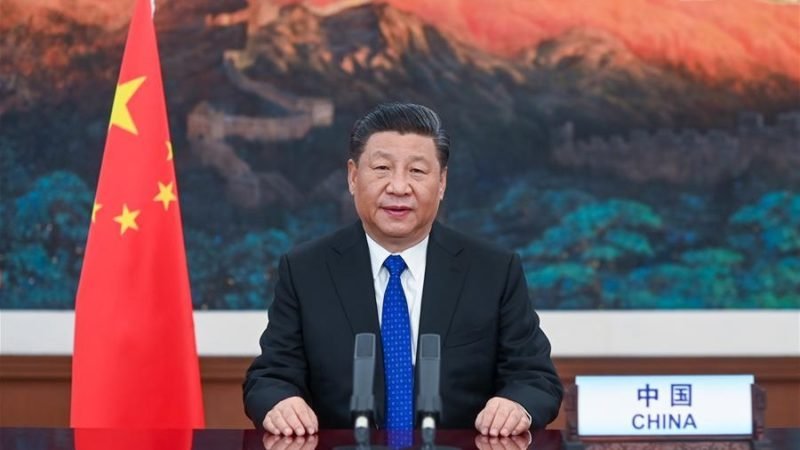China’s Upcoming ‘Two Sessions’ Can be Magic Moment to Return to Positive Messaging

The COVID-19 pandemic continues to wreak havoc on our world. Although China and a number of other countries in the Asia-Pacific region have been successful at containing the virus, the United States and Latin-American countries will struggle to overcome the advise impact of the coronavirus for the months ahead.
The international economy has been devastated by the pandemic since its was first discovered in the city of Wuhan, central China’s Hubei province. Hence, people viewed it as the virus from China and the Western media and politicians went into over-drive criticizing Beijing.
Perhaps, the Chinese government and its citizens were caught unprepared for the onslaught of attacks coming from the West, which explains why China’s Foreign Ministry had frequently lashed out at Washington and the foreign media. Such actions only made matters worse as the tit-for-tat attacks had further inflamed diplomatic tensions between Beijing and other sovereign governments.
False expectations
The Central government was winning the war on the coronavirus but losing the geopolitical public relations game. Beijing was getting blamed for not containing the virus within its territorial borders; for allegedly under-counting the number of confirmed cases in the country; for supposedly creating the deadly pathogen in a Wuhan bio-lab and stood accused of committing numerous outrageous crimes against humanity to cover-up the pandemic.
For-the-record, it was inevitable the virus would infect people outside China, since it had started to spread before the Wuhan lockdown was enforced on January 23. Yet in hindsight, the Chinese government could have responded better from a public relations standpoint.
It’s common knowledge that many people from the West despise China; the media loves to stir up controversy and politicians hold a special fondness for playing the blame game. The Chinese were being naivete to expect the world to rally around them when the virus was ravaging their country from early January to late March.

Changing course
Apparently, Beijing is beginning to learn from its prior mistakes as Chinese President Xi Jinping and the State Council are beginning to set a more positive tone. On Monday, President Xi addressed the opening of the 73rd session of the World Health Assembly from a live video link.
According to Xinhua, Beijing has pledged US$2 billion for over two years to fund efforts by WHO (World Health Organization) to combat the coronavirus while offering more economic assistance and medical support to developing nations. Beijing has agreed to permit WHO to investigate the true origins of COVID-19 and to analyze how the sovereign government have responded to the pandemic.
In other words, China will not block an independent inquiry to investigate Beijing’s responsibility over the coronavirus despite US Secretary of State Michael Pompeo insisting he was holding “enormous evidence” to prove China created a man-made virus.

Marching back to normal
China has already eased quarantine measures across the country and the Chinese are eager to return to their jobs, to go to school and to enjoy their leisurely outdoor activities. Nearly all offices, shops and public facilities have been reopened and there’s no turning back over fears of a second wave of the virus spreading in China.
Additionally, China’s annual Two Session is set to convene this Friday, May 22. The Chines People’s Political Consultative Conference (CPPCC), the advisory body drafting key measures for the Central government, and the National People’s Congress (NPC) are expected to address important themes that will impact China for the rest of the year.
As reported by Xinhua, the crucial topics for the Two Sessions are: Regular epidemic control, economic recovery within reach, poverty alleviation, boosting employment and to draw up a civil code. The civil code pertains to:
“Consisting of general provisions and six parts on property, contracts, personality rights, marriage and family, inheritance and torts liability, the draft has systematically integrated existing civil laws and regulations and modified them to adapt to new realities.
The decision to compile this civil code was announced in October 2014. According to the legislative plan, codification is expected to be concluded this year.
Once adopted, the civil code will greatly boost the modernization of China’s system and capacity for governance, said Wang Yi, dean of the law school at Renmin University of China.”
Why it matters
The Chinese are feeling more united than ever before. Although the West will not stop their attacks against Beijing, the Chinese government has concluded they should not bristle at the dark energy surrounding them. Instead, the country will take actions to move forward with a positive spirit.
There’s no need for Beijing to lament its fate as being unloved by the West. Either sovereign governments wish to work more closely with China or they don’t. If nation-states refuse Beijing’s assistance they have every right to do so and the Chinese should not harbour ill will over that.
Nonetheless, China is sending a powerful message that yes indeed the country has recovered from the COVID-19 pandemic and by convening the Two Session the Central government and domestic businesses stand eager to jumpstart the national economy.

Re-prioritizing the economy
The world is entering the depression era and it could take a year or two before the global economy can regain its full momentum again. China will not escape the downturn and the nation’s GDP (gross domestic product) had plunged 6.8% in the first quarter this year, from year-on-year. The Chinese economy has just turned the corner, but still many shops and factories have been shuttered and are likely to remain closed, due to the rising wave of bankruptcies.
The Two Session gives President Xi and the State Council, (China’s Cabinet body) an opportunity to explain the Central Government’s grand strategy to march ahead to support an economic rebound. Chinese officials should best be advised to stay positive since the “China fights back” approach was not a winning hand for them.


















